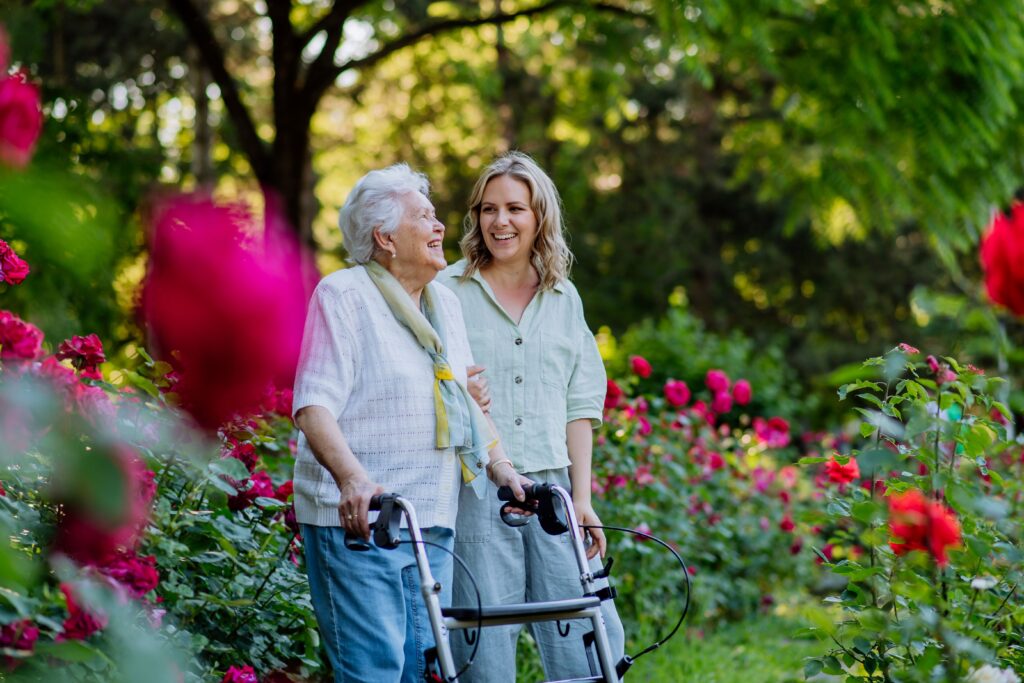By Sarah Flowerday, M.D., family medicine, The Portland Clinic

How can I look out for my aging parents?
Be involved in your parents’ day-to-day routines so that you can notice changes in their behavior or habits. Initiate discussions with them about their goals, and help to facilitate them.
What are some signs that a parent might need my help?
Changes that might signal a need for help include:
- Having multiple medical conditions or taking several medications
- Confusion or cognitive changes
- Declining self-care abilities (dressing, cooking, cleaning)
- Changes in hygiene
- Frailty or unexplained weight loss
- Falling or increasing risk of falls
- Not taking medications
- Avoiding or forgetting appointments
- Recent hospitalization or move to assisted living or nursing home
- Making poor financial decisions
Many of these can be health warning signs that might need to be addressed.
How can I help without overstepping?
Listen to your parents and take their opinions and concerns seriously. Understand their priorities and allow them to make decisions for their care when possible. Help them maintain as much independence as possible.
Where is the line between respecting my parents’ autonomy and being negligent as a caregiver?
Consider your parents’ safety when deciding whether to step in. If safety is not a concern, then allowing them to make their own decisions is best.
What can I do to help my parents stay independent and safe?
To support their independence and safety, encourage them to:
- Be physically active and eat healthy
- Stay socially engaged — isolation has a major negative impact on an elder’s cognitive state
- Get a hearing evaluation if there are signs of hearing loss
- Get help to address depression and anxiety if they are present
How can I help my parents eat better?
Grocery shopping assistance can be valuable for parents who have limited mobility or who don’t drive. Make sure they have healthy foods on hand that require little or no preparation. Help them set up delivery services, such as Meals on Wheels. And join them for a meal every now and then.
How can I work with my parents’ health care team?
Talk to your parents’ providers and share your concerns. Go to appointments with them, if they’re open to it. Ask questions and take notes to help them remember what to do. A second set of ears always helps, especially as we get older.
Dr. Flowerday sees patients at The Portland Clinic’s Northeast office.


